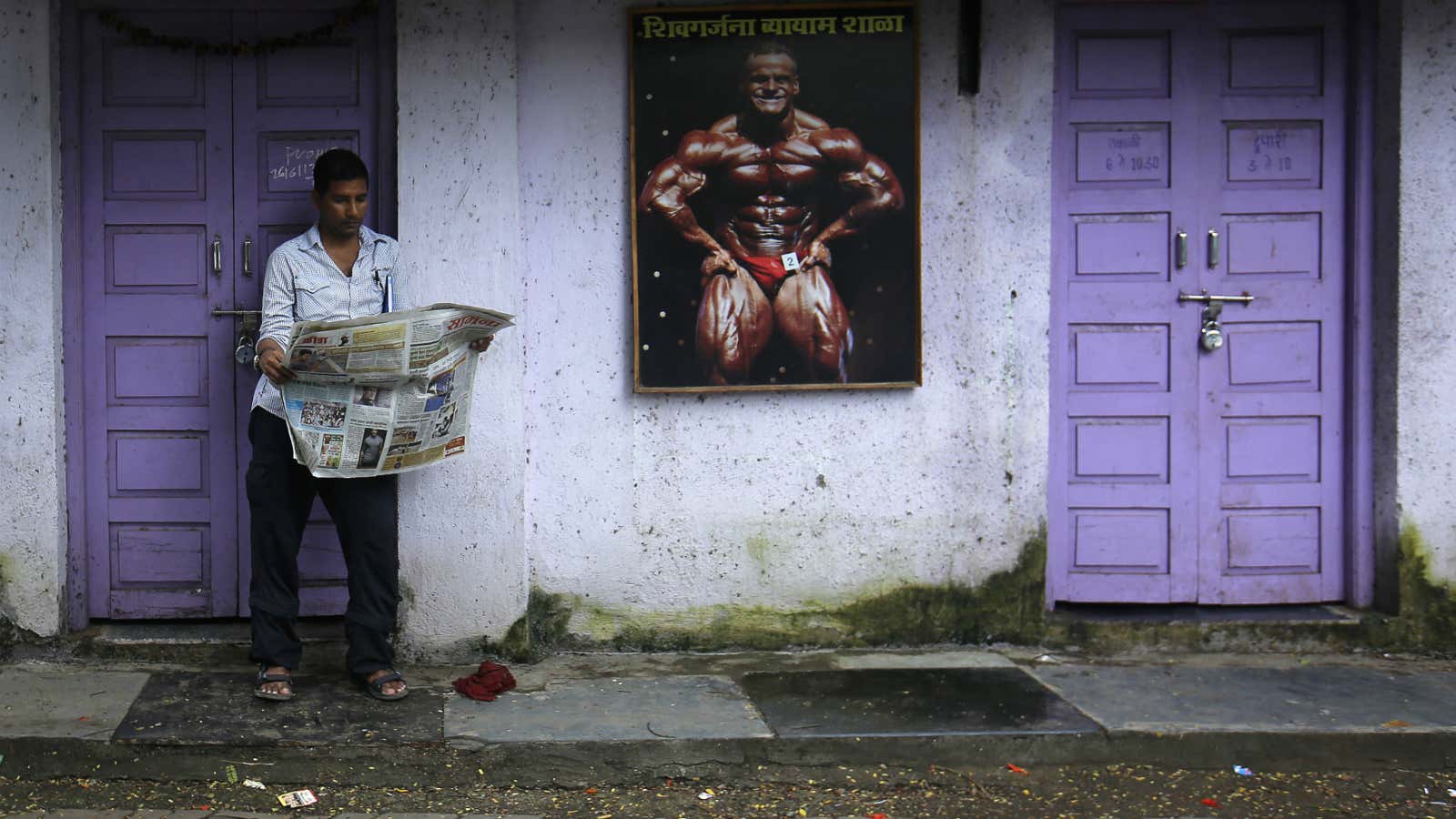Appearances can be deceiving, goes the cliche. But Indians, prone to second-guessing, are particularly underestimating or exaggerating the key issues facing their country, shows a recent survey.
“Indians’ perception…is warped and disconnected from reality,” says the Paris-based research firm Ipsos’s “Perils of Perception 2018” survey.
The study explores the divide that exists between people’s strongly-entrenched notions and reality. This year, Ipsos assessed perceptions of citizens from 37 countries to gauge their understanding on topics like global warming, the economy, demographics, healthcare, sex, and unemployment.
Approximately 1,000 people aged between 16 and 64 were surveyed in India, too, between Sept. 28 and Oct. 16.
In all, India ranked 12 out of the 37 countries surveyed. (Rank 1 suggests a maximum disconnect.) “The fact that India is placed 12th on the Misperception Index is a worrying sign,” the findings of the survey, made public on Dec. 20, said.
Thailand scored the lowest in the rankings followed by Mexico, and Turkey. The most accurate responses were from citizens of countries such as Hong Kong, New Zealand, Sweden, and Hungary.
Here are the topics where Indians remain largely misinformed.
Economy: Indians heavily underestimate their national economy. Respondents ranked the country’s economy at 50th place among 200 countries in a signal that Indian citizens are disconnected from its economic progress. India is, in fact, the sixth-largest economy in the world and among the fastest-growing.
Unemployment: While it is fair to say that India’s unemployment is a huge economic burden for the country, most Indians grossly overestimate the number of unemployed people here. “Out of every 100 people of working age in India, Indians think 44 are unemployed and looking for work; which is way above reality,” Ipsos said. India’s overall unemployment rate currently stands at 5%, while that among the country’s youth is 14%. This rate, though, is still the highest the country has ever witnessed, according to the report.
Immigration: Ipsos noted that Indians overestimate the number of immigrants in India. The average estimate by those surveyed was 24% (per 100 people), but in reality, the rate hovers at 0.4%, the survey pointed. However, India isn’t alone in this aspect. In fact, “across markets, it is seen that people tend to overestimate the number of immigrants in their country,” Ipsos noted.
Sex: Interestingly Indians think their counterparts are having way more sex than they actually are. Those surveyed were way off the mark when it came to guessing the frequency of sexual intercourse by women and men aged between 18 to 29 years here. When asked for their perception of how frequently women in that age group had sex in the past four weeks, respondents guessed 27 times, that’s far removed from the average reported frequency of thrice a week. For men too, the average guess was 32 times; while in reality the number is lower at about three times. Here, too, the perception among Indians about the sex life of their fellow citizens mirrored responses from respondents globally who too grossly overestimated others’ sex life.
The population of Muslims: When it comes to being aware of the country’s demographics, Indians remain quite ill-informed. Respondents from India overestimated the proportion of Muslims living in the country. The average guess was that India houses 32% Muslims, while India’s Muslim population is well below at roughly 14%, according to the 2011 Census. “Few markets are way off the mark—South Africa and Belgium for instance—they think that a quarter their population comprises Muslims; but, it’s 2% and 5% respectively,” the researchers added.
Other topics where Indians remain ill-informed include global warming, the country’s demographic dividend, and the health of its citizens.
However, there are a few topics where respondents are very clued in. One such was the instance of crime, where respondents closely guessed that interpersonal violence is the leading cause of death here. Such cases cause 52% of deaths in the country, according to the report.
Indian respondents also surprisingly, but accurately, guessed the quantum of renewable energy used in the country overall.
